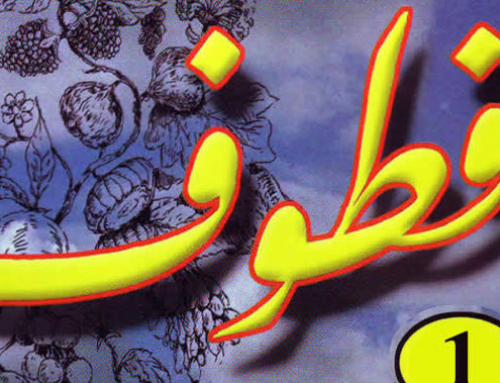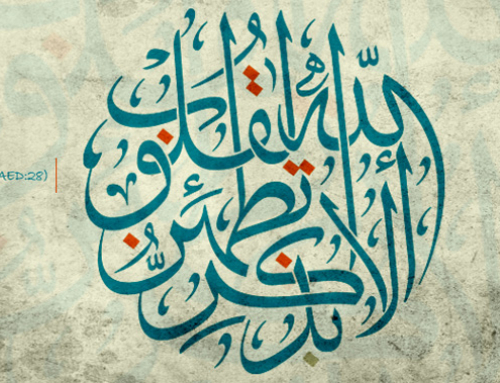Abdessalam Yassine
November 9, 2014
An article by Imam Abdassalam Yassine, published in 1980,
in the fourth issue of the Aljamaa magazine (Source in Arabic).
Translated from Arabic by the Editorial Board
O Lord, You know our grief over the degeneration that has befallen Muslims due to the wrong deeds of the transgressors. And You know, O Lord, our grief over the grudges that blaze in the hearts and the frail ideas that agitate in the minds. You know, O Lord, how Your Word [the Quran] and Your prophet’s [Muhammad] Sunna [Tradition] are used as weapons to disperse Muslims; rather to over-disperse them.
Thus, we place our complaint before You, our Lord, following the way Your Prophet and Messenger supplicated You, may Your peace and blessings reach his soul:
“O Lord! I am Your servant, son of your servant, son of your maidservant. My forelock is in Your Hand. Exact is your judgment and fair is your decree. I implore you by every single name of Yours by which You called Yourself, You sent down in Your Book or taught any of Your creatures or which You have preserved within Your undisclosed knowledge; [I implore You] to make the Quran the spring of my heart, the light of my bosom and the dissipation of my grief and worries. [This supplication was reported by Imam Ahmad from Abdullah Ibnu Mass’ud].
The messenger of God says: “whoever is overwhelmed by grief and gives this invocation, God would clear away his grief and distress and replace it with delight”
We are deeply grieved by the disunity of Islamists. We hope our Lord will inspire us all with wisdom to iron out differences and impartially consider all matters so that He would love us. Harun Ibnu U’sra reported from his father that Ibn Abbas (may God be pleased with him) said: “Moses said: O Lord who is your most beloved servants? God said: he who remembers and forgets Me not. Moses then asked who of your servants is the most knowledgeable? God said: the one who seeks people’s knowledge in addition to his own, to come across a word that leads him to guidance or shields him from perdition. Moses asked again: who of your servants is the wisest? God replied: the one who passes judgments against himself as he does against others, and passes judgments for others as he would do for himself”. Ibnu Taymiyah mentioned this in his book ‘The Iraki Masterpiece in the Deeds of Heart’. God’s love is, thus, contingent on remembering Him; knowledge is contingent on seeking it and being open-minded; while wisdom is contingent on impartiality and justice.
Any rising disagreement among Muslims is basically due to a defect among Muslim groups.
1. On the level of reason
Every one of these groups claims to be right and fails to find out what the others have. Thus, it deviates from the right path and sinks into the abyss, especially if it claims to be the only one walking along the straight path.
The ancient history of Muslims was plagued by philosophical reasoning when it embarked upon questioning the very self and attributes of God. Modern day rationalism, I mean the deification of reason, is an utter disruption of religion; rationalism denies the very existence of God! Hence, a lot of Muslims err as they engage in criticizing modern atheism without distinguishing between the old-style philosophical thought which leads to heresy, which has now died out, and the rationalistic view which has no room for these old philosophical propositions since it does not acknowledge the existence of God.
There are some Muslims who still invoke the old battles against the Jahmites (1) , Mu’tazilites (2) , philosophers and the rest of obsolete doctrines. That sort of mentality would find it difficult to understand the present-day reality unless it communicates with people and be ready to learn from them so that it would distinguish between the path of guidance and the tracks of decay as in the above-mentioned hadeeth of Ibnu Abbas.
Besides, the overall frailty, which we see embodied in the Muslims’ underdevelopment, disarray, and subordination to their enemies, is due to their failure to use reason correctly to understand reality, to understand, after God, the aim behind His commands in the Quran and Sunna, and to scientifically grasp the technology that humankind have innovated.
2. On the level of scriptural text
Every Muslim group claims to be the only one that best understands and puts into effect the teachings of the Quran and the Sunna. Amongst them are those who call for the use of interpretive judgment in order to understand the intentions of God and His messenger without recognizing the necessity of a correct reading of the book of the world, and without an insightful look into God’s signs in the universe. Another group would oscillate between these two readings and ultimately embark on unbridled activism, failing, therefore, to listen to the call of truth and to comply with the Quran and Sunna in principles, method and aims. Alongside these groups exist emulating sects which do not see ahead any possibility of venturing into the space of interpretive judgment and do not realize that the variables of time and space have made of our present and future two worlds in which Islam would cease to exist if the intellectual activity shrinks to patrimonial texts and invented customs.
So, we need to go back to the source, God’s Book (Quran) and the Sunna of His prophet (Mohammad). Therein are all the rules. We also need to go back to the branch -reality- where the rationale of those rules resides. Every group contends that it is abiding by the Book (Quran) and the Sunna but mindsets and intentions differ. Therefore, stances differ, vantage points diverge, relationships degenerate, mistrust prevails and impartiality, as described in the hadeeth of Ibn Abbas, becomes a rare commodity.
3. On the level of will
The Muslim Salafites want to implement the Sunan (whatever the prophet said, did or endorsed) and to fight heresies. On the other hand, Muslim Sufites – it is high time we put aside all sensitivities to terminology – want God’s countenance. All Islamic groups look forward to a sort of government that complies with what God has decreed. But, some of them adopt undercover organization to counter the violence of the ignorant with similar violence. Others, however, recommend perseverant smooth outreach. Others call for public activism within the framework of elections.
Reason, scriptural text and will is an equation which would result in faith, power and unity if the aptitude for learning and the pursuit of wisdom conjoin for the sublime end of showing love and affection for God (glorified be He) and persistently praising Him as it is stipulated in the aforementioned hadeeth narrated by Ibn Abbas. Yet, this equation would breed nothing but loss, disaccord, and weakness if mindsets remain locked and impartiality remains a missing commodity; if heedlessness [toward God] overcomes praising Him; if the love for leadership overcomes love for God; if the power of caprice overcomes the call for God in every Muslim’s heart.
Anyone who calls for the convergence of hearts and the complementarity between interpretive judgment and the clustering around God would not keep imitating nor would he tolerate scriptural texts (of tradition) between him and the clear source. May God bless the soul of the great scholar of the Ummah, Ibn Abbas who, after a person insisted on quoting the prophet’s companions Abu Bakr and Umar, retorted: “verily, God is about to send down a fire to burn you! I am saying God said while you are telling me Abu Bakr said and Omar said!”
Still, anyone who says God said and the messenger of God said and did is required to have an intellectual maturity, broad knowledge and clarity of intention to be worthy of being listened to the same way the great scholar of the Umma, Ibn Abbas, was listened to.
But if the system of the idea itself is fully or partly broken, if the transmission is mechanical and not clearly articulated to the transmitter either for linguistic deficiency of or because of overlooking the aims of the shari’a; and if the will is driven by caprice rather than by yearning for God, they would all amount to nothing but unheeded calls in the void.
References
| ↑1 | Jahmi is a pejorative term used especially by early Hanbalites to refer to the followers of Jahm Ibn Safwan who was the first Muslim who spoke about the created-ness of the Quran, the rejection of Abraham’s friendship to God and Moses’ speaking to Him |
|---|---|
| ↑2 | Mu’tazilah is an Islamic school of theology based on reason and rational thought that flourished in the cities of Basra and Baghdad, both in present-day Iraq, during the 8th–10th centuries |









